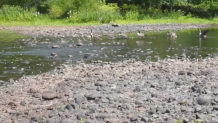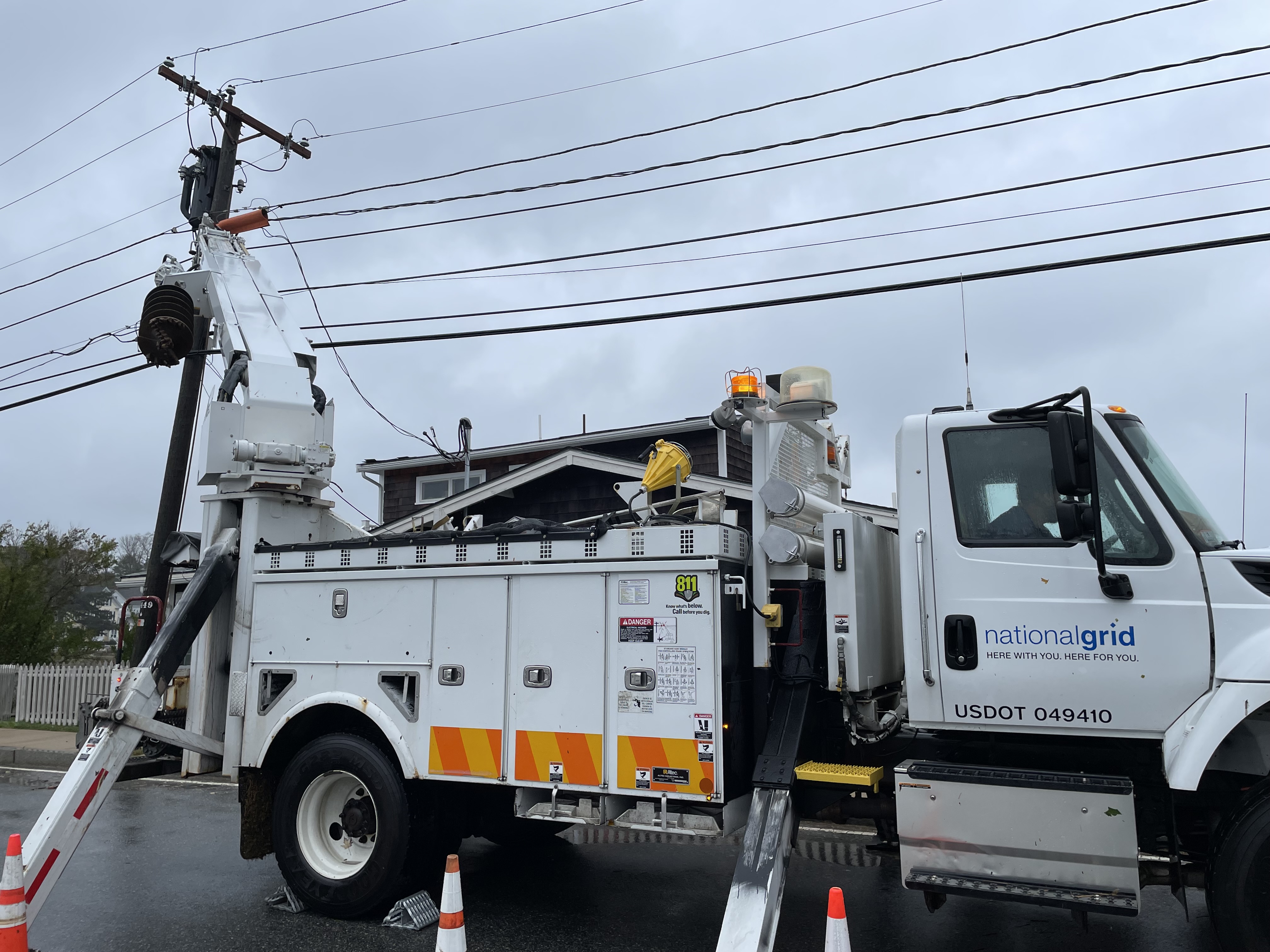Despite recent rain, the statewide drought is getting worse.
According to the State Drought Task Force, most of Massachusetts is experiencing critical drought levels with many rivers and streams seeing record low daily flows. According to the National Weather Service, Worcester, Essex, Bristol and Norfolk counties are in particularly bad shape.
WATCH ANYTIME FOR FREE
>Stream NBC10 Boston news for free, 24/7, wherever you are. |
"We're seeing culverts with no stream coming out the other end. We're seeing places where it's habitat that would normally support fish turtles, other kinds of aquatic wildlife are not able to support that wildlife,” said Katherine Lange, with the Massachusetts Rivers Alliance.
The coalition of environmental advocacy organizations have been documenting the impact of the drought across the state. Their presentation to the task force included a picture from Cutler Park in Needham that appeared to show the Charles River receding from the banks. Photos from Dedham show exposed infrastructure and rock that is normally submerged underwater. In Kingston, a fish ladder in the Jones River was spotted without water. In Uxbridge, videos show kayakers on the Blackstone River walking their boats over dried parts of the river.
Get updates on what's happening in Boston to your inbox. Sign up for our >News Headlines newsletter.

"For that to happen in a state that normally is pretty wet that we can rely on our rivers. We can rely on our precipitation is pretty wild and indicative of the new normal we'll see with climate change going forward."

The Massachusetts Department of Environmental Protection reported Tuesday that there are 186 restrictions on non-essential outdoor water use across the state.
Local
In-depth news coverage of the Greater Boston Area.
“When you have most of the state one step below emergency, that's a big deal, and I really hope that folks are taking that seriously,” said Lange. "You know, whether or not you're seeing those impacts exactly where you live, just knowing that stream flows around you, groundwater levels could be quite low, and that conserving water is more important than it ever has been."
In some areas, as much as 11 inches of rain would need to fall in a month to pull out of drought conditions.




